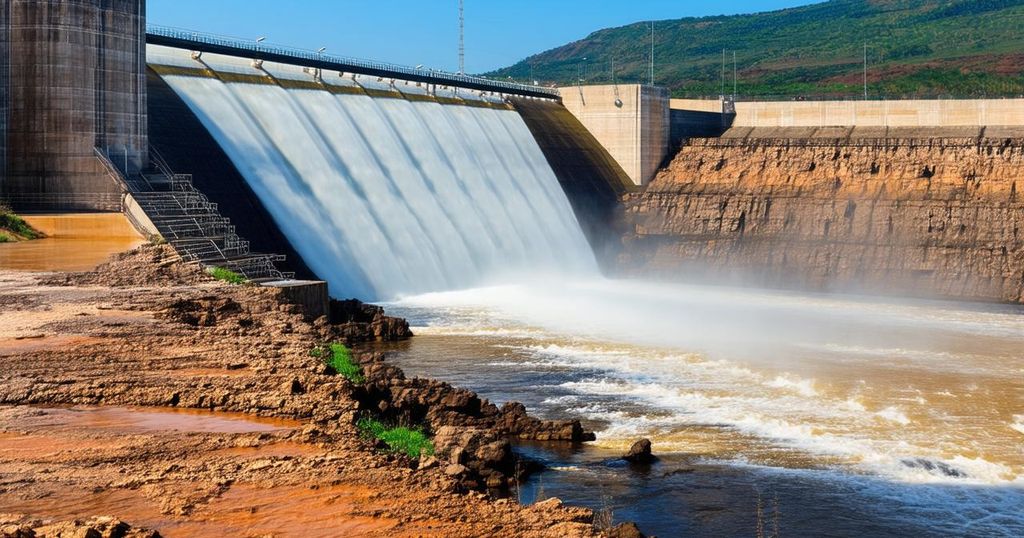Power Crisis in Zambia and Zimbabwe: Drought-Induced Outages

Both Zambia and Zimbabwe experience severe power outages, lasting up to 17 hours daily, due to drought conditions leading to critically low water levels in the Kariba Dam. This situation has significantly impacted the ability to generate hydroelectric power, leaving both countries struggling to meet their energy needs amidst a growing crisis.
Zambia and Zimbabwe are currently grappling with severe power shortages, characterized by extensive outages lasting up to 17 hours daily. This crisis is attributed to significant droughts that have drastically reduced water levels in the Kariba Dam, one of the world’s largest human-made lakes and a vital resource for hydroelectric power generation in the region. The diminished water supply has led to widespread electricity failures, plunging both nations into darkness and highlighting their reliance on hydroelectric energy. The resultant power cuts are impacting daily life, economic activities, and industrial operations, prompting urgent appeals for alternative energy solutions and comprehensive water management strategies to address this growing problem. The situation remains critical, with officials struggling to devise effective responses amidst the ongoing drought conditions.
The Kariba Dam, located on the border between Zambia and Zimbabwe, serves as a crucial hydroelectric power source for both countries. Traditionally, it has enabled the generation of electricity necessary for various sectors, including residential, commercial, and industrial uses. However, prolonged droughts attributed to changing climate patterns and deforestation have led to critically low water levels in the reservoir, severely impeding the ability to generate sufficient power. The energy crisis has not only prompted power cuts but has also raised concerns over energy independence and sustainability in the region, necessitating immediate action to find viable solutions and enhance energy resilience.
In conclusion, the ongoing power outages in Zambia and Zimbabwe underscore the dire consequences of climatic changes affecting critical resources such as the Kariba Dam. With power cuts extending up to 17 hours a day, the situation poses substantial challenges to daily life and economic stability. The dilemma emphasizes the urgent need for sustainable energy alternatives and effective water management strategies to mitigate the impact of future droughts and ensure energy security for both nations.
Original Source: www.france24.com







